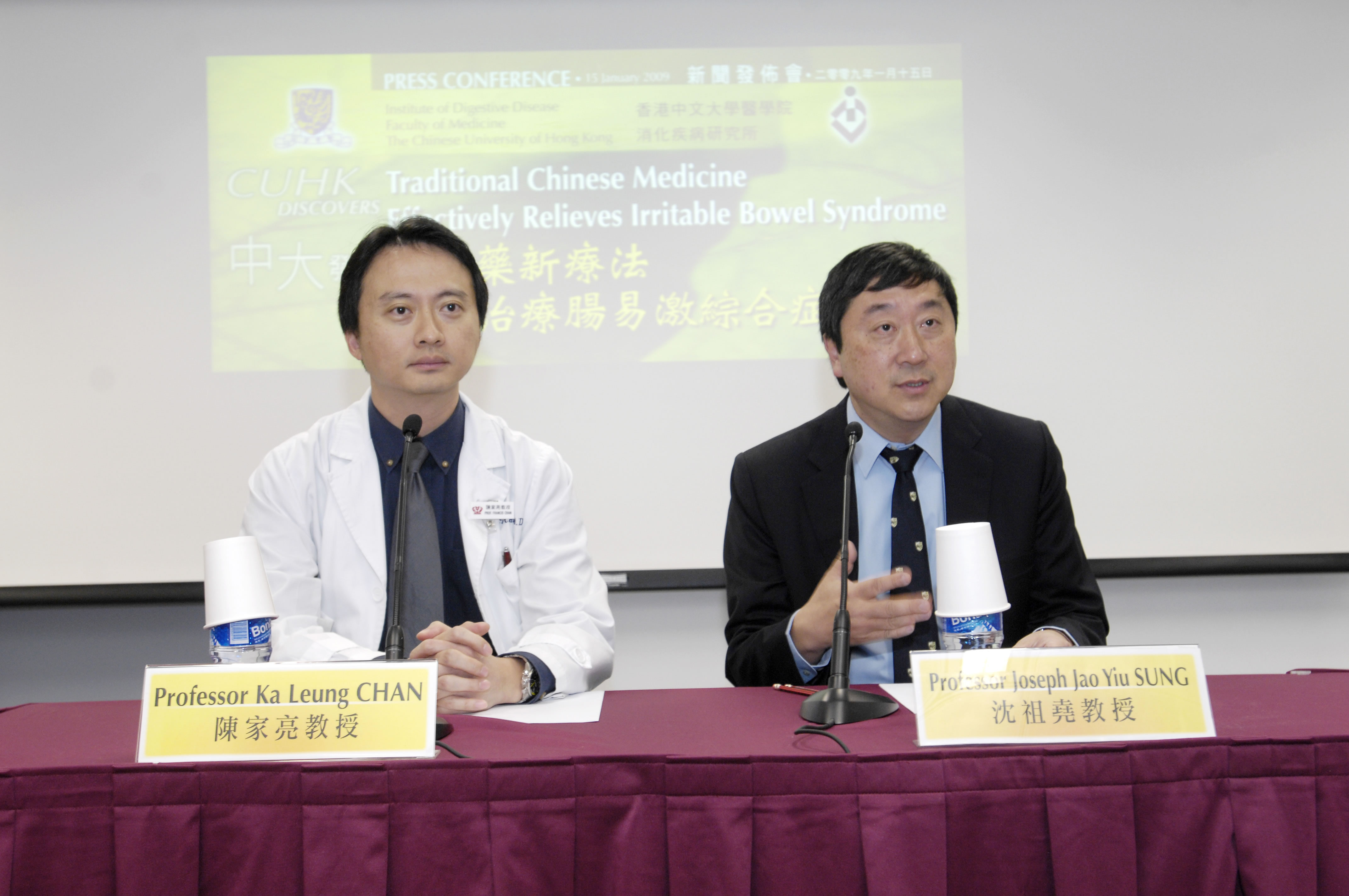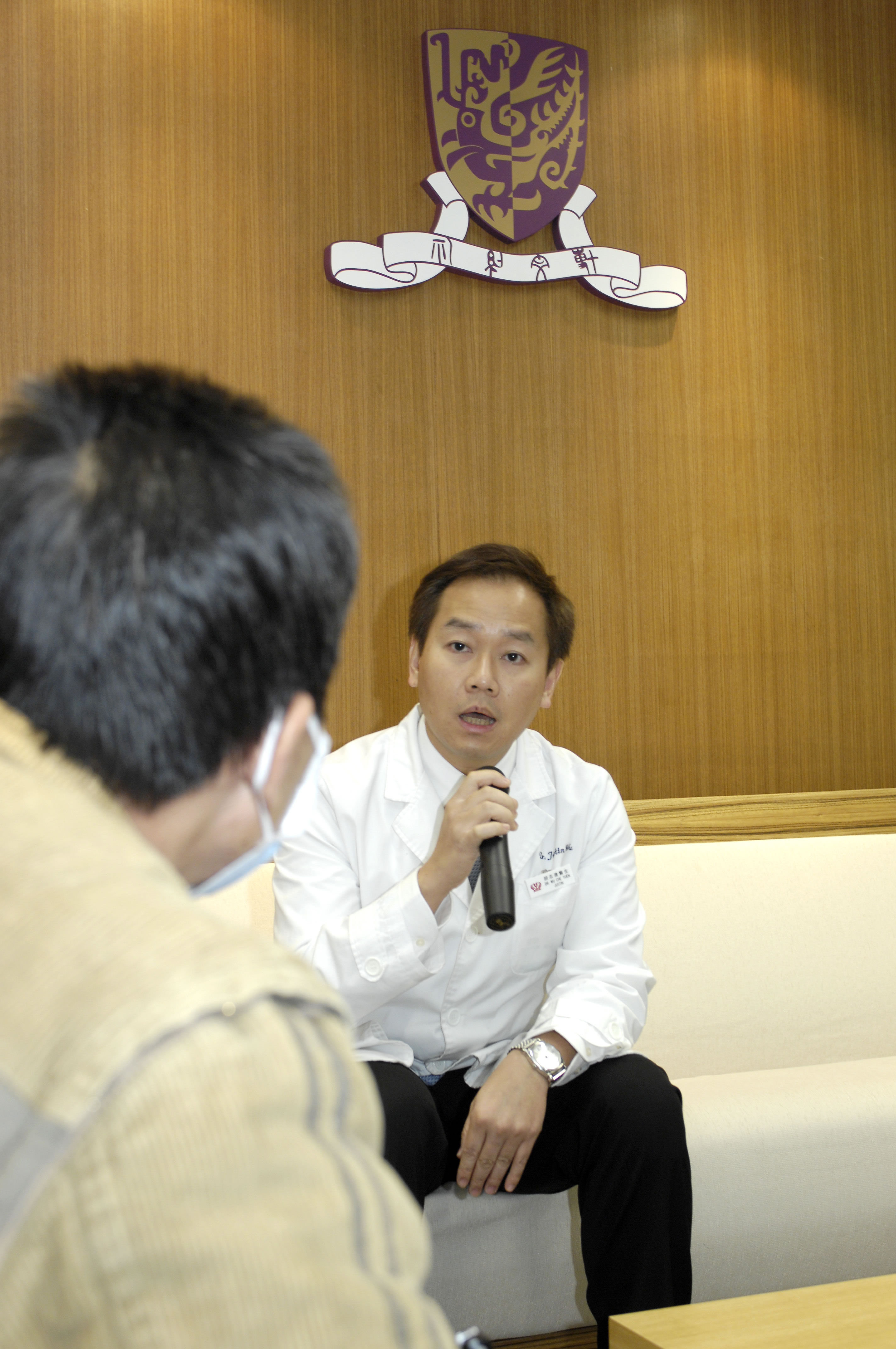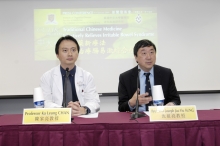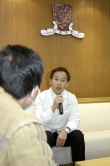CUHK
News Centre
Traditional Chinese Medicine Effectively Relieves Irritable Bowel Syndrome
Irritable bowel syndrome (IBS) is one of the commonest digestive diseases, which affects approximately 310,000 people (about 5.4% of the adult population) in Hong Kong. Over 70% of IBS patients have troublesome abdominal pain and diarrhea that lead to major disturbance on daily activities and psychological well-being. Over 15% of IBS patients are suffering from various mood disorders at the same time.
Traditional Chinese herbal medicine (TCM) is widely used by patients with functional digestive problems. A Hong Kong study showed that it is probably more effective than conventional Western medicine for treatment of IBS. A pilot randomized placebo controlled trial study conducted by the Institute of Digestive Disease at The Chinese University of Hong Kong (CUHK) during 2005-2007 studied the effectiveness of TCM for treatment of IBS patients. It reveals that TCM is beneficial for these patients.
Professor Joseph Sung, Director of Institute of Digestive Disease, Faculty of Medicine at CUHK said, “Unfortunately, there is no effective remedy for IBS. Conventional Western medicine, such as anti-motility agent, cannot provide satisfactory and sustained relief of symptoms. Many patients even experience worsening of symptoms after taking these medicines. Newer drugs for treatment of IBS were withdrawn from markets because of serious side effects and even deaths related to the use of these medicines. Owing to the poor treatment response and the fear of underlying severe diseases, these patients often undergo repeated unnecessary investigations. The promising results of our pilot study may revolutionize the treatment of IBS in the future.”
This pilot randomized placebo controlled trial studied 84 patients with abdominal pain and diarrhea as predominant symptoms who fulfilled diagnostic criteria of IBS during 2005-2007. These patients were randomly assigned to receive one of the three different treatments: (1) 7-herb TCM decoction and placebo holopon, a conventional Western medicine for treatment of IBS; (2) placebo TCM and holopon or (3) double placebo. At the end of the 8-week treatment, 52% of patients treated with active TCM reported overall improvement in symptoms compared to 32% (holopon) and 43% (double placebo) for the other two treatment groups. This trend was maintained even after stopping treatment for 8 weeks (42% Vs 25% Vs 31%). Patients taking active TCM also had significant improvement in bowel movements.
“This pilot study suggests that TCM can be a promising treatment for IBS. A larger scale clinical trial is currently underway to test the efficacy of TCM,” Professor Joseph Sung added.
(From left) Professor Francis Chan, Professor of Medicine & Therapeutics, Faculty of Medicine, CUHK; and Professor Joseph Sung, Chairman, Department of Medicine & Therapeutics, and Director, Institute of Digestive Disease, Faculty of Medicine, CUHK







